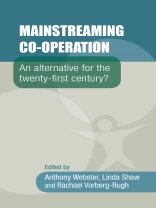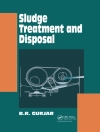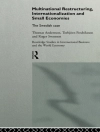After decades of flying beneath the radar, co-operation as a principle of business and socio-economic organisation is moving from the margins of economic, social and political thought into the mainstream. In both the developed and developing world, co-operative models are increasingly viewed as central to tackling a diverse array of issues, including global food security, climate change, sustainable economic development, public service provision and gender inequality. This collection, drawing together research from an interdisciplinary group of scholars and co-operative practitioners, considers the different spheres in which co-operatives are becoming more prominent. Drawing examples from different national and international contexts, the book offers major insights into how co-operation will come to occupy a more central role in social and economic life in the twenty-first century.
Mainstreaming co-operation will be of interest to students and academics studying economics, business studies, history, politics and international development, but also to policy makers interested in co-operatives and mutuals as a viable alternative to conventional models of social and economic development.
Mục lục
Introduction – Anthony Webster, Linda Shaw and Rachael Vorberg-Rugh
1. Mainstreaming co-operatives after the global financial crisis – Claudia Sanchez Bajo and Bruno Roelants
2. Our agencies: persuasion and the value of a concept to mainstreaming co-operation – Philip Grant
3. G. J. Holyoake (1807-1906): a resource for a journey of hope? – Stephen Yeo
4. History, citizenship and co-operative education, c. 1895-1930 – Keith Vernon
5. ‘The unit of the co-operative movement…is a woman’: gender and the development of the co-operative business model in Britain – Rachael Vorberg-Rugh
6. A continuing challenge: women and leadership in co-operatives – Barbara Rawlings and Linda Shaw
7. The wasted years? The Co-operative Party during the 1930s – Angela Whitecross
8. New models of ownership and governance – Cliff Mills and Ruth Yeoman
9. Co-operatives in health care: global prospects for the development of co-operatives as instruments of consumer-centred health care – Vern Hughes
10. Rising numbers of architectural co-operatives in an uncertain construction economy – Stephen Mc Cusker
11. Co-operatives and climate protection: housing co-operatives in Germany – Carolin Schröder and Heike Walk
12. The co-operative identity: good for poverty reduction? – Rowshan Hannan
13. What do we really know about workers’ co-operatives? – Virginie Pérotin
14.The impact of the co-operative ethos on the creation of shared value: a case study of Lincolnshire Co-operative Society – Phil Considine and Martin Hingley
15. Learning to swim against the tide: crises and co-operative credibility – some international and historical examples – Anthony Webster, Linda Shaw, Rachael Vorberg-Rugh, John F. Wilson and Ian Snaith
Index
Giới thiệu về tác giả
John K. Walton is Ikerbasque Research Professor at the University of the Basque Country, Bilbao












